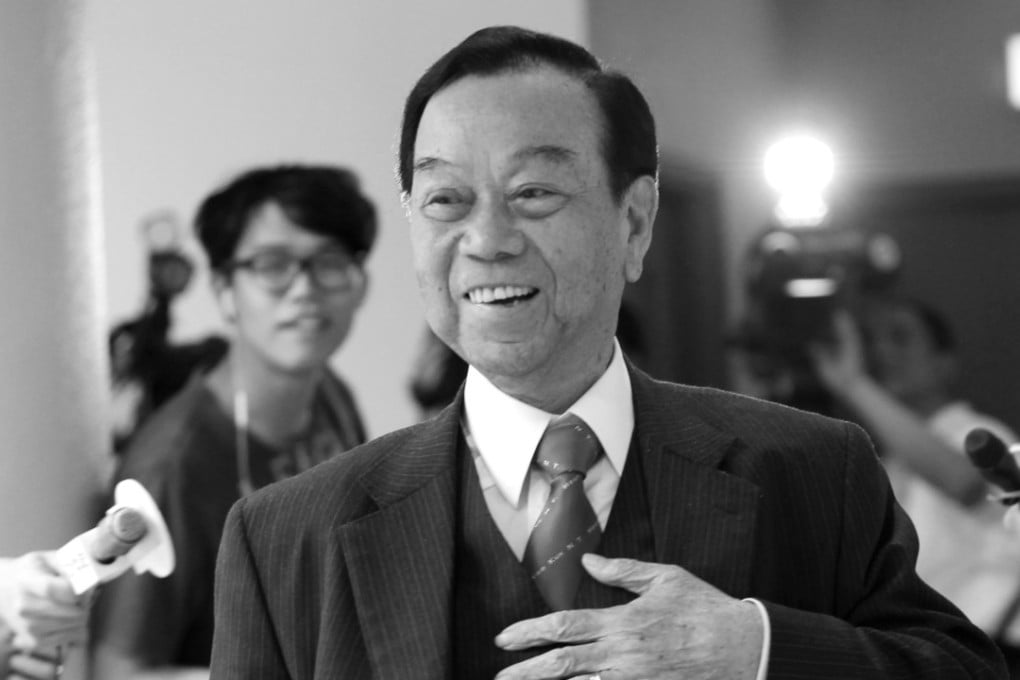Hong Kong’s ‘King of New Territories’ Lau Wong-fat dies at age 80
Rural strongman lauded for protecting the interests of indigenous villagers during long career as head of the Heung Yee Kuk

One of Hong Kong’s most influential political figures, the rural strongman Lau Wong-fat, affectionately called “Uncle Fat” by close friends and relatives, died on Sunday. He was 80.
Village leaders on Sunday night hailed Lau as a great leader for his fight to have their rights and interests enshrined in the city’s mini-constitution, and top officials praised him as a bridge between the government and villagers.
His son, Kenneth, said Lau died peacefully at home in the early hours. “Family members were beside him,” he said, not mentioning the cause of death.
Lau’s brother-in-law, Kingsley Sit Ho-yin – speaking outside Blessing Villa, the family’s mansion in Tuen Mun – said: “Uncle Fat had been taking rest at home [in recent years]. His health was largely fine but suddenly turned bad in recent days.”
In a statement, the Heung Yee Kuk, a government-recognised advisory body on New Territories affairs, described Lau as a man who “loved the country, loved Hong Kong, and loved the rural community”, and acknowledged his 35 years of leadership as kuk chairman.
Lau’s critics liked to tease him about a less edifying moment in his long career: his late arrival at the Legislative Council in 2015 for the vote on political reform, which triggered a bizarre walkout by more than 30 of his fellow pro-government lawmakers that turned the expected defeat of the government’s bill into a rout.